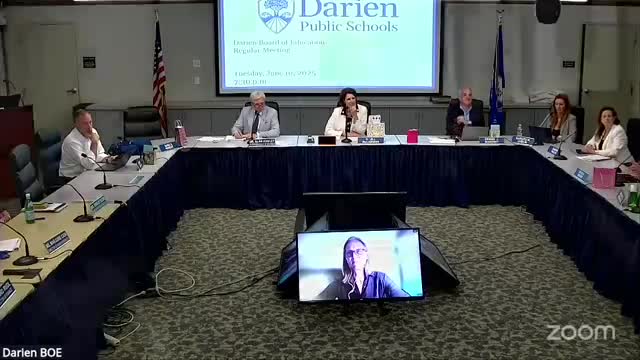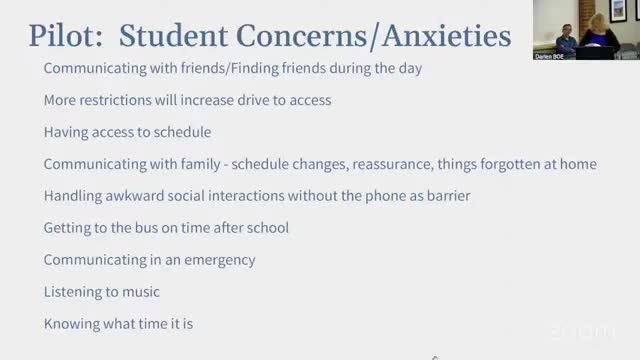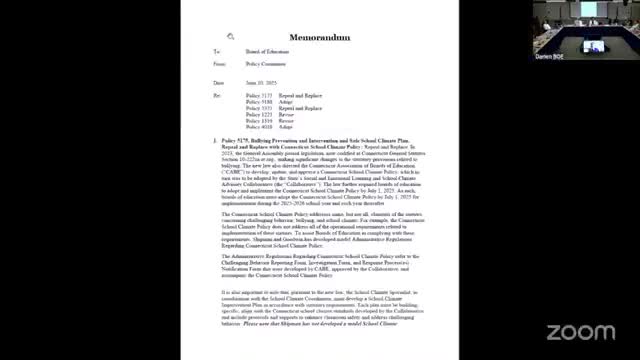Article not found
This article is no longer available. But don't worry—we've gathered other articles that discuss the same topic.

Darien board hears strong parent pushback on proposed Monday late starts, weighs alternatives

Darien board approves $32,806 budget amendment to buy Yondr phone pouches for high school

Board approves updated safety, bullying and ethics policies required by recent state changes

Resident raises concerns about sexualized content in district libraries during public comment

